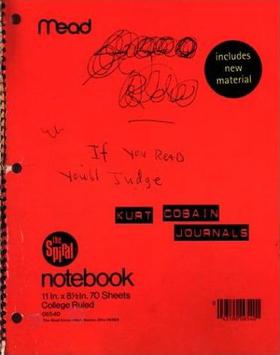A very wise and lovely friend of mine introduced me to Sydney Banks and the Three Principles some time ago. She also recently shared this insightful podcast with me . It is entitled Ep 62-Healing in Addiction Sydney Banks & Mystical Teachings of Sydney Banks.
The Three Principles as taught by Sydney Banks are Mind, Consciousness and Thought and are considered to point to the Truth as found in the core philosophies of all the world’s great religions. Since Banks first uncovered the Three Principles they have been incorporated into psychology, addiction recovery and various esoteric and spiritual practices with the bold claim that All human behaviour and social structures on earth are formed via Mind, Consciousness and Thought.
In this podcast Harold Derbitsky, a former student of Sydney Banks and President of ACT (Advanced Coaches Training) Inc. who specializes in healing from addiction, and mental illness as well as Native American social issues discusses his understanding of the Three Principles with regard to addiction recovery and spirituality among Indigenous peoples.
Derbitsky claims that although the philosophy taught by Sydney Banks is akin to the world’s great religious revelations, Banks himself was “an ordinary guy” who tapped into the truth of universal oneness. This oneness must be discovered by searching inside oneself where the true spirit of God and love reside. Derbitsky explains that even though Banks was the vessel for this knowledge, he insisted each person must do their own work to discover the truth for themselves, and he would never take credit for the success of his students even though they were following his teachings. We each have to find our own way, not just become followers of the Three Principles, because “to follow words makes you a fool.” Each person must embrace the understanding and experience that goes beyond words, because it is inside each of us.
Although Banks’ Three Principles have been largely absorbed into psychology, Derbitsky says Banks was not originally talking about psychology, but was mostly focused on religion and esotericism. Derbitsky rejected modern psychology, choosing instead to embrace indigenous mysticism. He claims Indigenous peoples’ traditions tend to have an understanding of the three principles already. He says that in an Indigenous context we should not use the words “mind, thought and consciousness,” but instead “Spirit, thought and consciousness.” This is an important distinction since “mind” as it is used in the Three Principles refers to a universal mind to which we are all connected. “Mind,” he says is better left to the psychologists, while many Indigenous traditions focus on the nature of Spirit as the unifying factor in the universe. As a traditionalist practitioner myself, this makes sense.
The reason the Three Principles are so effective in curing addiction according to Derbitsky is that addiction has a spiritual nature caused by over thinking. In fact Derbitsky makes the bold assertion that “all problems are caused by over thinking.” People get stuck in cycles and thoughts of self dissatisfaction and criticism. They become addicted, attend rehabilitation to get off the substance only to return to the habit a few months later and end up back in a rehabilitation program once again. This is a pattern that can be seen occurring not just in Indigenous or impoverished communities, but in communities of all persuasions.
This pattern is cured, according to Derbitsky by capturing a feeling inside yourself that is better than alcohol, anger, depression or whatever the addiction may be. Once a person captures that feeling they will return to it instead of the addiction. He says if the best feeling someone knows is cocaine they will just return to cocaine when they need to feel something. It must however be continuously applied in order for it to be maintained. Derbitsky compares it to participating in the Sweat Lodge which purifies the body and spirit of the practitioner, but when people exit the lodge and return to talking the same old talk and participating in the same old activities, they lose that feeling and return to being troubled souls.
I can relate to this statement. Though I have never been truly addicted to any substance I certainly have been known to overindulge in alcohol, especially when the stresses and anxieties of life have worn me down. Similarly, knowing my consumption was unhealthy I would take long breaks from overindulgence only to eventually return to the habit as the craving returned in response to a new or continuing stressor in my daily life. It was when I found a certain stillness, and center in the practice of such esoteric arts as meditation and yoga that I realized I no longer much cared for the intoxicating effects of substances, because it only seem to diminish that peace of mind and spirit. This has affected me to the point that I have come to outgrow enjoying even the presence of drinkers and drinking facilities as they tend to disturb that sense of peace I acquire through my spiritual work.
Derbitsky explains that the “Three Principles” isn’t a new discover, it is just a language to explain the feeling of spiritual truth, and insight which raises your level of consciousness when you go inside and see that truth. He says when clients go into that feeling they don’t become a client, they become a “sharer of energy and minds.” This results in healing and bringing out a person’s unlimited potential.
Going inside, however is only the beginning of the journey, but too many think it’s the end. This causes some people to get “crazy ideas” about spirituality and enlightenment resulting in attitudes or opinions bordering on sectarianism. To curb this problem Derbitsky illustrated four steps to the process.
Hope for a better life
Experiencing the Positive Feeling
Understanding the Process
Conscious Actions to spread the joy the Three Principles bring
Derbitsky says you must start by capturing the feeling for yourself, then you must share it and you will grow more because we all affect everyone around us which affects the world. This last sentiment is another point with which I have especially come to identify. As I began to discover the benefits of the peace and stillness of spirit I have achieved, I found that by sharing it through authenticity and vulnerability with other people who are struggling I was able to help them lift themselves up, and then we both would walk away better for it.
This is a process of making the world better one person at a time starting with ourselves.







